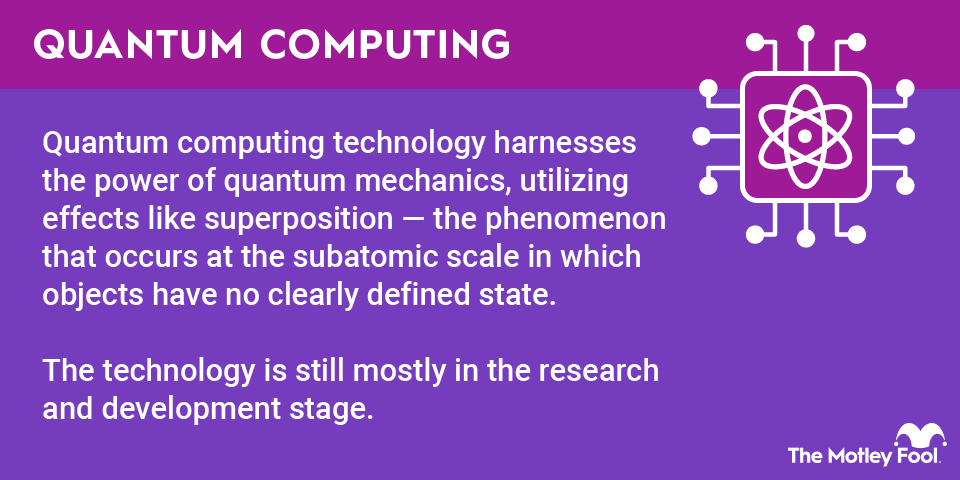Quantum computing is a hot industry for investors right now, but there are many different aspects to this discipline to understand before you jump in. For example, do you know what superconducting quantum computing is, or why it matters? Read on, and we'll give you a basic and brief explanation.

What is superconducting quantum computing?
Superconducting quantum computing (SQC) describes one way that a quantum computer can be built. A computer built on these principles uses tiny superconducting circuits along with Josephson junctions -- two superconductors separated by a thin, non-superconducting barrier -- and must be kept in an incredibly cold environment, reaching temperatures of 10 to 20 millikelvins (that's around -460 degrees Fahrenheit).
SQC systems require microwave pulses and resonators to communicate with the machines and to get readouts. This can make them very fast, but they're also very fragile by nature. The main difference between quantum computers and the kind we use every day is that, instead of circuits only being able to communicate either "on" or "off" as a series of 0s and 1s, in quantum computing, these circuits can be in those states, plus in-between states, all at the same time.
Why is superconducting quantum computing used?
Superconducting quantum computing is limited in use due to the constraints on how these units must be built. They're generally involved in research, helping to solve problems that require a great deal of computing power.
In the future, it's hoped that SQC can be used to solve more complex business problems, like developing new drugs, advanced battery technology, and even new building materials. Cryptography is another area of focus for researchers at this time.
How does artificial intelligence relate to superconducting quantum computing?
Because artificial intelligence (AI) requires a great deal of computational power and will only need more as it gets smarter, a lot of people wonder where the overlap is between that and superconducting quantum computing. Perhaps surprisingly, AI is actually being used to help with research and development to advance this type of quantum computing. It can be set on problems like how to calibrate systems, design systems, and predict and detect anomalies.
However, as SQC matures, it could also be used to power some AI projects, as well as working in conjunction with AI tools to solve complex problems as a team. But don't count on this happening soon; this is a very long-term vision, likely a decade or more away. A lot has to go right with two different kinds of still-experimental technology for it to happen.
Why does superconducting quantum computing matter to investors?
Superconducting quantum computing matters to investors who are looking for the next big tech stocks, which will necessarily be in technologies that aren't in large-scale commercial production yet. There's been a great deal of interest in this space, but it's important to carefully evaluate any companies making big promises right now.
There are large-caps that are dabbling in the quantum space, including well-known computing leaders. There are also some reputable pure plays, but they must be approached with a great deal of caution, since this is an incredibly risky technology to invest in at this time. Small positions in both pure players and pick-and-shovel companies like cryogenics companies and testing firms will help diversify your position in quantum computing if you want to pursue this route.
As with any industry, SQC companies should be looked at as a long-term investment, with attention given to what they're doing better or differently, the moats they're creating for their systems, and the potential for realistic and useful innovations.



















